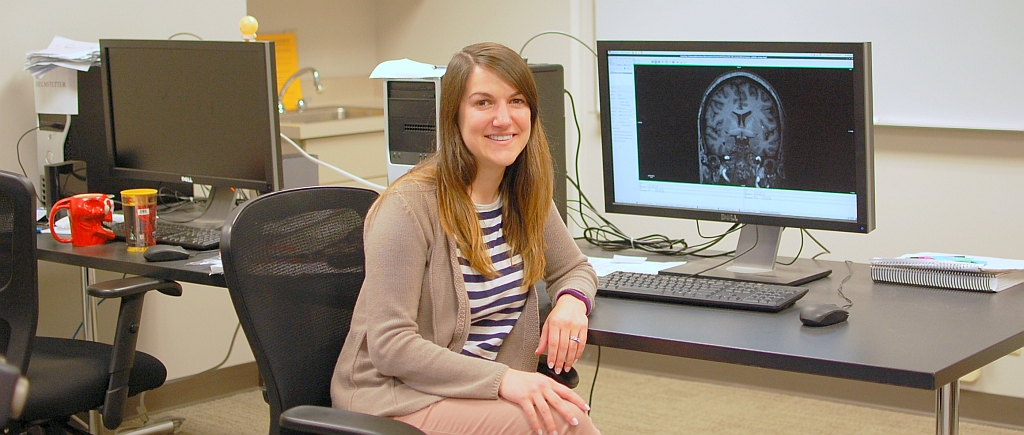Miskovich, T. A., Pedersen, W. S., Belleau, E. L., Shollenbarger, S., Lisdahl, K. M., & Larson, C. L. (2016). Cortical Gyrification Patterns Associated with Trait Anxiety. PloS one, 11(2), e0149434.
Graduate student Tara Miskovich and Colleagues published a new study in the journal PLOS One that examined abnormalities in cortical folding associated with trait anxiety. Dispositional anxiety is a personality trait that is associated with mental health disorders, such as anxiety and depression. Miskovich and Colleagues present evidence that trait anxiety is associated with abnormal cortical folding in the precuneus, a key node of the default mode network, a brain network that subserves self-focused thinking. Cortical folding is thought to reflect underlying cortical connectivity that occurs during early neurodevelopment. Therefore, trait anxiety may be associated with disrupted connectivity within this network, putting anxious individuals at risk for developing mental health disorders.
These results are consistent with studies examining cortical folding in clinical samples of anxiety and depression. This may indicate that folding abnormalities in the precuneus found in clinical populations are actually associated with this broader trait vulnerability to developing one of these disorders.
